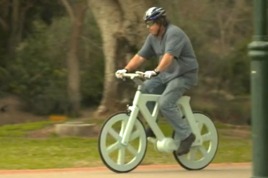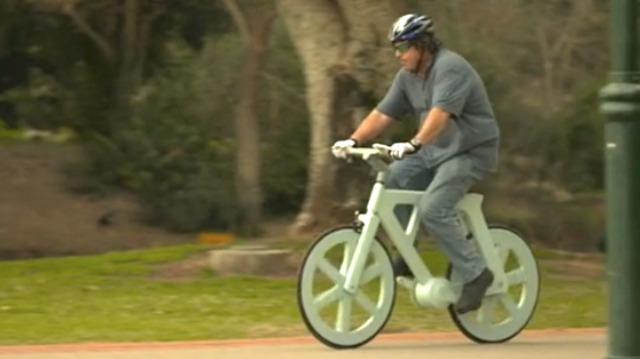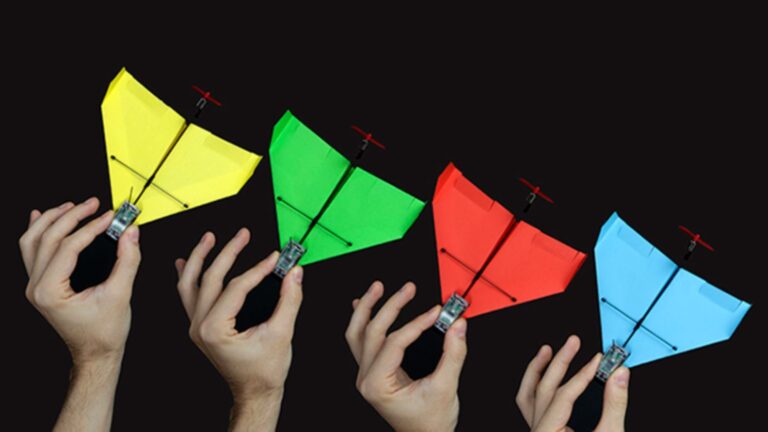One of the biggest stories of 2012 was the Israeli-designed cardboard bicycle. International media as well as individuals, corporations, environmentalists and charities got enormously excited when they heard that Izhar Gafni, a mechanical engineer living on a kibbutz, had created a waterproof bicycle out of cardboard – and that he planned on marketing it for under $20.
And now, the crowdsourcing campaign. Gafni, Cardboard Technologies CEO Nimrod Elmish and the rest of the team need money to make this game-changing technology possible. They’ve launched a campaign on indiegogo in hopes of raising $2 million by August 8, 2013.
But whereas hype skyrocketed when Gafni first announced the new technology, funding has dawdled so far.
So, here’s the question: Is the world ready for a change in global transportation habits?
The creators say they’re asking the general public for money because they want to kick-start a green revolution. The funds are being earmarked toward building a factory in Israel, with a production line that will manufacture 2,000 cardboard bicycles per day.
“Contributing to this project means more than just the perk you’ll get in return. It means that children in under-developed countries can have access to these bikes to get to school, and their parents can get to work,” they explain on indiegogo.
A chunk of the money is coming from Jeffrey Swartz, founder of the footwear and apparel company Timberland, who joined the project as an investor in early June. But the company says its planned factory will need $5.5 million.
“It’s important to us to have a philanthropic element to the project,” Elmish told Reuters. “Aside from raising money for the bicycles through crowdfunding, the western world will know that it is essentially donating bicycles to developing countries, where they will be sold for $30 to $50. We’ll be able to get free marketing by cooperating with major marketers who, by transferring us raw materials, will save themselves the cost of recycling their packaging.”
The company has a group of dedicated volunteers who want to see this dream become a reality. Their first project? The Indiegogo crowdsourcing campaign.
“Because we want to include as many people as possible in this green revolution, we launched this Indiegogo campaign. The funds we raise will allow us to establish the first cardboard bicycle production line, thereby creating jobs, affordable transportation and a cleaner environment.”
The bikes weigh nine kilograms. At first, Gafni said they’d cost about $20. New estimations put the price tag at between $30 and $50 in developing countries, and $100 in developed nations.
And for those who have been following the news stories about Cardboard Technologies, the bike prototypes are only the beginning of this planned cardboard revolution. They’ve already got a cardboard wheelchair and a cardboard baby stroller model, too.
Gafni and company have three weeks to change the world. Will they succeed?

















